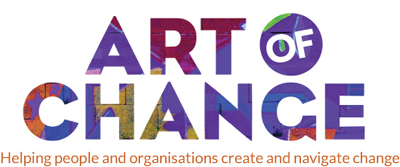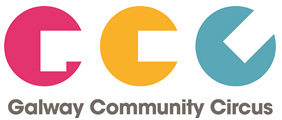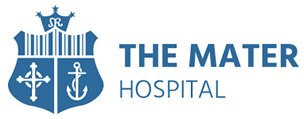
Hello. I’m Susan Coughlan
I’m a consultant, coach, facilitator and trainer with a love for supporting practitioners in the arts and culture sector to navigate this rapidly changing world. I help people create space for powerful new conversations and develop new ways of working that better meet the challenges of now.
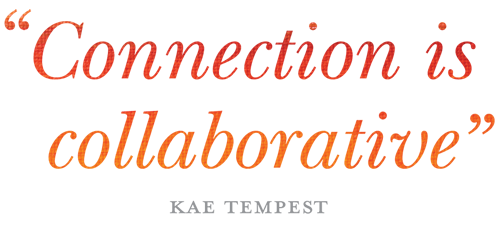
CONSULTING
I help people who are meeting change to step into curiosity. Instead of asking ‘How did this happen?’ and ‘Who’s fault is it?’ we create a space to ask:
‘What’s changing?’
‘How can we grow from here?’
‘Who do we choose to be in this context?
FACILITATION
I provide facilitation for events and gatherings where facilitation is part of a process rather than an isolated one-off event. Traditionally the role of facilitator is understood as ‘making things easy’. Developmental facilitation extends further, catalysing ways for groups and gatherings to maximise their capacity to work well together and achieve their purpose.
COACHING
My coaching approach is relational and holistic. Whether leader, entrepreneur or practitioner, I focus on you as a whole person, supporting you to maximise your energy, creativity and aliveness. I also bring a strategic focus and can be your ally, critical friend, and champion.
ENNEAGRAM
The Enneagram is a personal and professional growth model. It combines ancient spiritual wisdom and modern psychology to provide profound insights into our personality, our patterns of thinking, feeling and behaving and the inner motivations behind them. The enneagram does not put you in a box, rather it helps you to get out of the box you are in.
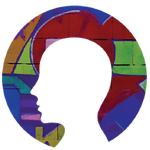
About Me
I have 28 years of experience working as a process consultant and an organisation development consultant. My clients all seem to share a passion and commitment to their purpose along with a dedication to being of service to something greater than themselves.
I’m a natural collaborator and I believe that new thinking, change and development happens in relationships and in the reality and messiness of live, collaborative work. I want to be your ally. I care that you feel connected to yourself and to all that you are a part of. I will support and challenge you in your evolution and growth.
Clients will say that I often act as a bridge-builder and translator in complex systems and will see me drive conversations deeper to unlock understanding and maximise inclusivity.
I am an enquirer. Since I was 7 years old I’ve been driven by a deep and innate belief that things need to change for the better, and that what got us here is not going to be what gets us to where we need to be. It was disturbing and isolating to believe this in 1970s rural Ireland and these days I find it is incontrovertible and yet no less disturbing.
What mattered to me at that young age, and what still matters, is that we tell this truth, and other truths about life, and about what it means to be human. I’ve always been drawn to the arts and creative practice because it doesn’t lie about how things actually are. The upshot is that I have always been curious about what it is to be human and how we, and things, change. I believe that adapting to change is an art we can learn.
Personally, I am grounded in difference and diversity – I am bi-cultural, with an Australian mother and an Irish father. I was raised and educated in a rural Protestant farming community in Cork. I am a member of the LGBTQ+ community, and I am in a neurodivergent marriage. These outlying perspectives have shown me how we find belonging and identity in community, giving me a capacity to sense whatever is hidden and overlooked in a situation or conversation. Usually this enables me to ask good questions, surfacing what is unseen.

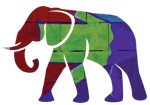
Qualifications & Learning
- Profesional Enneagram Coaching Course with CP Academy
- Accredited Action Learning Facilitator
- Accredited Relational Dynamics Coach
- ICF Accredited Certificate Coaching with the Enneagram
- MSc (distinction) in Organisational Change and Consulting, Ashridge Executive Education, UK
- Advanced Diploma in Management Practice, University of Ulster
- BA Communications, DCU
“We are becoming more of what we do every day.
The method of change is the change.”
Humanistic psychology (Rogers), Gestalt (Beisser), Embodied Leadership (Wendy Palmer & Paul King); Enneagram (Bea Chestnut, Uranio Paes, Jessica Dibb, Russ Hudson, Ginger Lapid Bogda); Social Presencing Theatre (Arawana Hayashi & Joan O’Donnell); Improvisational Clowning (Nose to Nose, Sharon Usher & Carol Walsh); Appreciative Inquiry (David Cooperider); Mindfulness & Self-compassion (Mary O’Callaghan, Kristin Neff); Meditation (Tara Brach).
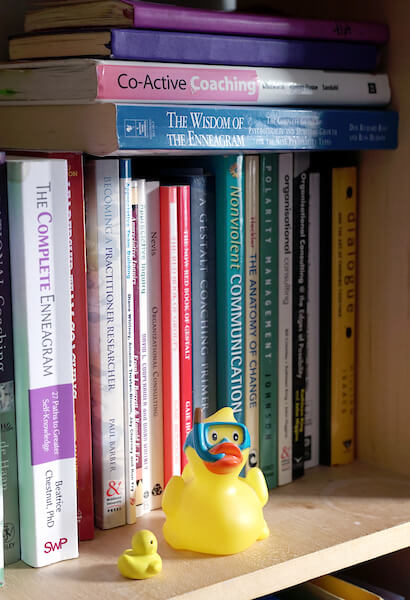
![]()
About You
My clients include arts and cultural leaders, professionals such as nurses and community and youth workers, individual creatives and artists and organisational leaders and change catalysts – all of whom seem to share the following:
You care about your people, and the purpose behind your work but are frustrated by conflicting demands, limited opportunities to delegate, high levels of operational demands in day to day delivery, and blockages in the system that limit potential.
As things get more complex and uncertain in the world and in your work, you recognise an increasing call for leadership. You want to take up the call but you are unsure how, and you don’t want to lose your mojo, your magic, your core motivation. You’ve maybe come to leadership indirectly and discovered that you are good at it.
You have a relational rather than a technical role i.e. you are a leader, a person whose job is to influence others or the system or whose work, like artists, is to connect to those around you in wider society.
- You are motivated by care and excellence
- awakening to the needs of the 21st century
- motivated by diversity, inclusion and social equity
- in need of time out from the doing to reflect and take stock
- feeling isolated and/or overlooked or possibly in poorly valued or understood cross-organisational roles
- feeling stuck and in need of support, an ally or critical friend
- seeking to figure out next steps in an integrated and holistic way
- seeking deeper collaboration and connection with others
- navigating transition where there are high levels of complexity and uncertainty
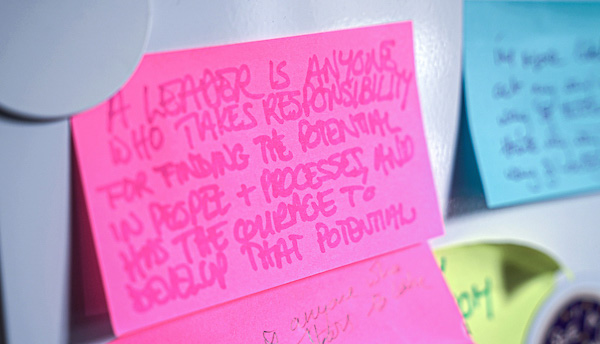

![]()
My Approach
We are living in a time of near-constant change and yearn to emerge into a new and better story. Einstein said ‘the world we have created is a product of our thinking, it cannot be changed without changing our thinking’.
How we think about change in organisations is key. The old way was to think of organisations as being like machines – fixed and divided into distinct units and parts. Except organisations are not machines. Organisations are living systems, made up of networks of relationships that are not fixed but constantly dynamically changing and evolving.
Change – planned or unplanned – happens faster than transition. Transition is the slower and less rational mind, heart and body process we all go through to adapt to change. It is not a linear process. It’s complex and the arising uncertainty causes anxiety.
We first need to pause, slow down and reflect.

CREATIVITY AND THE CONDITIONS FOR CHANGE
I tune in to supporting the capacities for creative leadership in people, organisations and systems. We need to tune in to our individual and collective creativity so we can contribute new ideas and new ways of doing things that are attuned to the needs of now.
Creativity involves getting up close and personal with the unknown and with uncertainty and this is uncomfortable. We need to choose to invest time and energy in getting more comfortable with discomfort. It’s like a muscle we can develop, if we take the time, feel safe and are supported.
To invite people’s creativity at work, we need to create good conditions for creativity and an open and adaptive mindset.
Through dialogue, discussion and partnership with you we weave the right conditions for you to pause, reflect, and deeper understand the context you are in. I help create those conditions for change through :
- Creating safe space
- Leading deep listening
- Growing trusting relationships
- Modelling a caring & compassionate approach
This involves letting go of judgment and control, offering unconditional support, being willing to walk alongside others in the journey and inviting the whole person, not only their role, to turn up. It’s about making it inviting and safe for people to share who they are and how they are at work
REFLECTIVE PRACTICE
-
Leads to increased self awareness
-
Supports choicefulness around how we behave
-
Enables ‘aha’ moments to arise
-
Brings together theory and practice to reach higher levels of understanding of professional dilemmas and situations

ACTION LEARNING
My practice is informed by an action learning approach and it is also a modality that I offer. Action Learning is a group coaching methodology that supports participants in finding solutions to their own challenges through open and focused questioning.
Action learning is structured and requires an investment of time. On the job informal learning and learning via experience is the most successful and impactful form of learning. McCall, Lombardo and Eichinger pioneered the 70:20:10 model for learning and development which emphasises that learning happens:
- 70% from on the job, experience-based practice
- 20% from people (mostly the boss). Highest from coaching, mentoring
- 10% from formal training, reading and structured workshops
“For an organisation to survive, its rate of learning must be at least equal to the rate of change in its external environment” – Reg Revans’ law Revan’s law.
Through it people develop skills of reflective practice and critical thinking. While it focuses on the individual it contributes to developing leaders, building teams, and changing organisations.
Action Learning Taster Session
Three–hour session, in person or online, providing your team or a peer group with a direct experience of action learning as this is the best way to discover its many benefits. Topics covered:
-
Principles and origins of Action Learning
-
Benefits and applications
-
Core skills: listening and asking open questions
-
The steps and process of Action Learning
-
Practical experience of an action learning ‘round’
